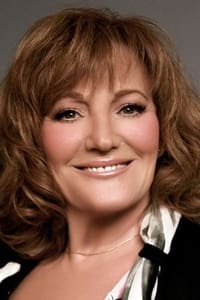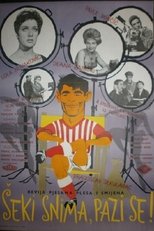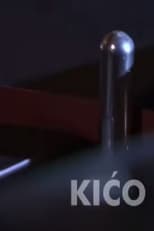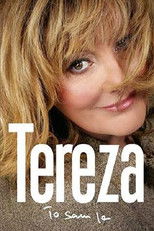
Tereza Kesovija
Tereza Ana Kesovija (born 3 October 1938) is an internationally acclaimed Croatian recording artist. She was one of the most recognizable figures on the music scene in former Yugoslavia, and is renowned for her wide vocal range and operatic style. She also had a successful career in France. She has held many concerts around the world, being one of the few Yugoslav musicians to have sold out shows in The Royal Albert Hall, L'Olympia and Carnegie H...all. Kesovija was born in Dubrovnik and grew up in Konavle and Dubrovnik, where she got her early music education. She won a federal young musicians competition in Ljubljana, Slovenia. Afterwards, she graduated from the flute program at the Zagreb Music Academy, and as a student began appearing in amateur music events. In 1962, shortly after the start of her professional career, she won her first international contest at Saint-Vincent, Italy. After this success, Tereza had a tour in USSR and she recorded there one EP with Italian songs for the biggest Russian music company – Melodiya. She spent 1963 and 1964 touring USSR, Poland, Finland, Denmark, Germany, Switzerland, Norway and Sweden. She also had a lot of TV appearances in these countries. In 1965, she moved to France, although she did not speak French. There she became a famous star. At the beginning she was singing in cabarets; she was mostly singing in Carević cabaret. She said: "Six tough months, I used to remain in smoke until early in the morning. Waiting for my performances I didn’t know what to do. I was sitting all alone smoking cigarette after cigarette." In 1967, she made the first recording of "La chanson de Lara" (Lara's Theme) from the film Doctor Zhivago. It was her first big French success sold out in more than 50,000 copies. After album La chanson de Lara she recorded her second French album C’est ma chanson with song "Je l'aime, je l'aime". It was sold out in more than 160,000 copies. With the song "Bien plus fort", Tereza was chosen by Grace Kelly to represent Monaco in the Eurovision 1966. She was frequently called as La bête de scène or Super-Dalida by French press. In 1968, Kesovija performed with Enrico Macias at the L'Olympia in Paris. It was her second Olympia after 1966. She had toured France. During the 1970s, Tereza became world-known star representing Yugoslav and French song worldwide. In Yugoslavia, her song "Nono, moj dobri Nono" (Grandpa, My Dear Grandpa) was popular. Claudio Villa recorded "Il tuo mondo", an Italian version of Tereza's "Nono" and Mireille Mathieu recorded the French version, "Pour deux coeurs qui s'aiment". She performed on many famous festivals (in Mexico City, Rio de Janeiro, Sopot, Palma de Majorca, Sofia, Istanbul etc.). In Yugoslavia, she was honored with Best Female Singer of the Year Award six years in a row (1974–79). ... Source: Article "Tereza Kesovija" from Wikipedia in English, licensed under CC-BY-SA 3.0.






